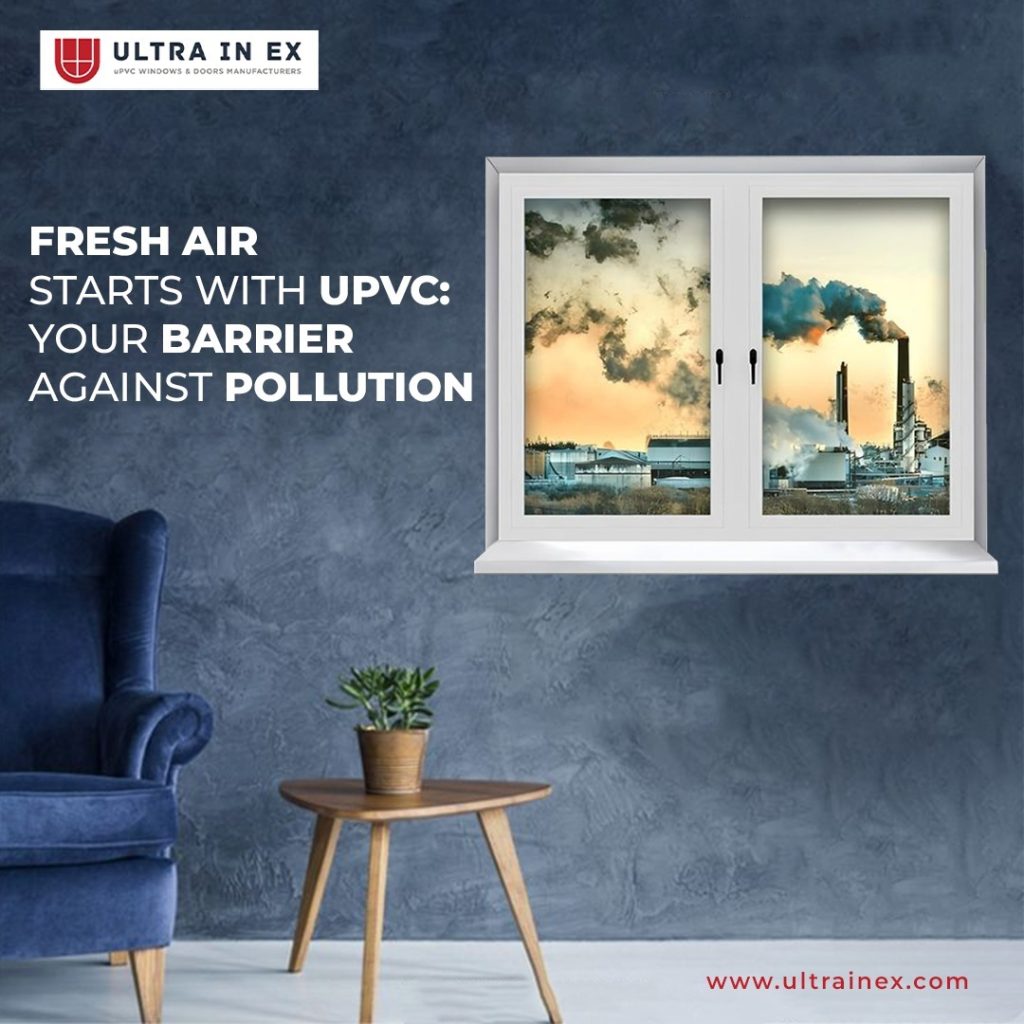uPVC windows are primarily designed to provide several functional benefits in residential and commercial buildings and while they do contribute to keeping indoor environments more insulated from external factors like noise and weather, they are not specifically designed to mitigate pollution. Their key advantages include:

- Insulation: uPVC windows offer excellent thermal insulation, helping to maintain stable indoor temperatures and reduce heating or cooling costs.
- Durability: They are resistant to moisture, corrosion, and rotting, making them a durable choice for various climates.
- Low Maintenance: uPVC windows are relatively low maintenance compared to other materials like wood, as they do not require painting and are easy to clean.
- Sound Insulation: They can also provide effective sound insulation, reducing external noise levels inside buildings.
However, it’s important to note that while uPVC windows can help create a more comfortable indoor environment by sealing out drafts and reducing noise, they are not specifically engineered to filter out pollution such as airborne particulates or gases. Indoor air quality improvements related to pollution would typically involve specific ventilation systems or air purifiers designed for that purpose.
If pollution control is a significant concern, especially in urban areas with high levels of pollutants, additional measures such as air filtration systems or choosing windows with integrated air quality features might be necessary, rather than relying solely on the properties of uPVC windows
